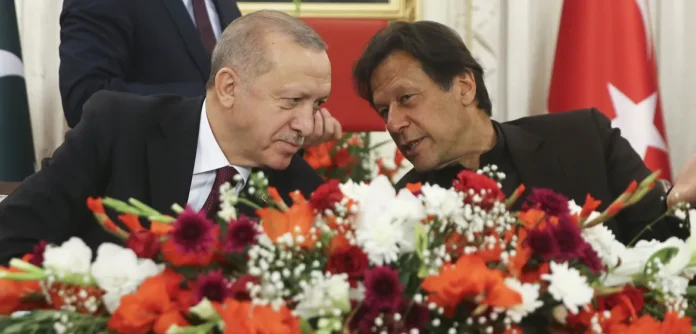Author: Ravale Mohydin
Affiliation: TRT World Research Centre
Organization/Publisher: TRT World Research Centre
Data/Place: November 3, 2020/Istanbul, Turkey
Type of Literature: Report
Number of Pages: 18
Keywords: Turkey, Pakistan, Communications, Politics, International Relations, Foreign Policy
Brief:
Although Turkey and Pakistan have long shared sentimental relations, they have significantly lacked to materialize into strong economic and defense relations. Drawing strength from historic relations, the two countries have picked threads to cement trade relations which are the lowest by any measure despite the fact that Pakistan has signed its biggest contracts with the Turkish defense industry. In this analytical report, the author details how the two countries appear to have at least taken a similar position in communicating their messages on global issues. However, it also reflects efforts at Pakistan’s Foreign Office to set the country’s incongruous foreign policy right. The report finds its roots in the friendship between Turkey’s President Recep Tayyip Erdogan and Pakistan’s Prime Minister Imran Khan – both of whom have condemned Islamophobia and attacks against Islam. The author compares how the two states identify themselves through their foreign policy as well as how they communicate those ideals, measuring congruence by using the political speeches of Erdogan and Khan regarding Kashmir, the Israel-Palestine dispute, the Syrian Civil War, the Houthi Insurgency in Yemen, the US’ war in Afghanistan, the 2020 Armenian-Azerbaijani Conflict, and the Libyan Civil War. She analyzes how despite the two sides seeming to enjoy a “high degree of co-orientation between the foreign policies,” that they also are bound by their national interests with respect to the Houthi Insurgency and the Syrian Civil War. The author argues that despite varying positions of the two countries on a few critical issues, the “political communications of Erdogan and Khan (and thus foreign policies of Turkey and Pakistan, respectively) have a high degree of congruence” while “navigating complex foreign policy environments but have demonstrated an all-weather relationship that is mature and appreciative of the inherent value of maintaining long-term alliances despite the occasional differences.”
By: Riyaz ul Khaliq, Non-Resident CIGA Research Associate




